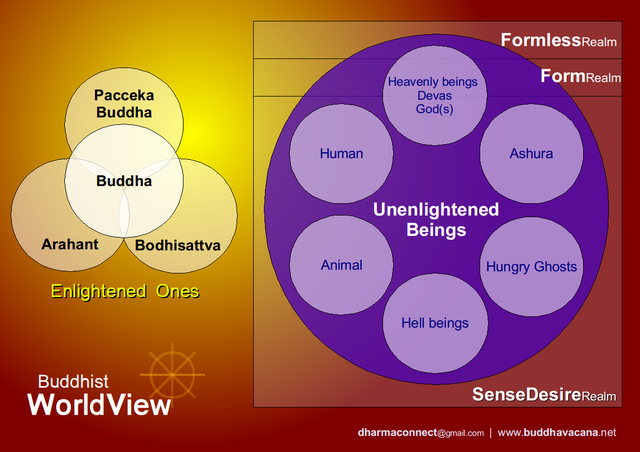Today, an 6.0-magnitude earthquake struck Turkey. This follows the series of earthquakes that occurred in the past few weeks. It is easy for us to forget how fortunate we are to have whatever peace and safety we presently have, until we see how terribly wrong things can turn out.
In the “Sutra on the Eight Great Realization of Great Beings” 《佛說八大人覺經 》, the first stanza of the first realisation is
世間無常,國土危脆
The world is impermanent, the country and land are fragile.
Let us not take things for granted and assume things will be, must be or should be in a certain manner tomorrow just because it is today. For all are impermanent, and that which is impermanent is subject to change. Something that is subject to change, tends more towards agitation than not. Something that is subject to change and tends towards agitation brings uncertainty, anxiety and unease. This in turn does not promote happiness.
If we forget this, we become complacent and start having presumptions about things and people around us. We become used to how things are and when they suddenly change, or more rightly exhibit significant change, we fret, we tremble, we are vexed.
References
- http://w3.cbeta.org/result/normal/T17/0779_001.htm
- http://www.buddhanet.net/ebooks_ms.htm
- http://www.buddhanet.net/pdf_file/beingssutra.pdf
Earthquakes in the past few weeks
Please join me in dedicating to those who perished or are still suffering.
8 March 2010 – Strong quake hits eastern Turkey
http://news.bbc.co.uk/2/hi/europe/8554857.stm
TURKEY — A strong earthquake has struck eastern Turkey, killing at least 38 people, officials have said.
The 6.0-magnitude earthquake struck the village of Basyurt in Elazig province at 0432 (0232 GMT). It was followed by several aftershocks.
4 March 2010 – Strong earthquake hits Taiwan; injuries reported
http://www.google.com/hostednews/ap/article/ALeqM5jG5hZlCCO3i3V4jYnlNrmMShKbrAD9E7IR500
TAIPEI, Taiwan — A powerful 6.4-magnitude earthquake rocked southern Taiwan on Thursday, causing widespread damage and disrupting communications around the island. Local news reports said several people were injured.
The quake was centered in the county of Kaohsiung, and struck at a depth of about 3.1 miles (5 kilometers). Kaohsiung is about 249 miles (400 kilometers) south of the capital Taipei.
No tsunami alert was issued.
27 February 2010 – State of Catastrophe Declared
in Chile After Massive 8.8-Magnitude Quake
http://www.foxnews.com/story/0,2933,587565,00.html
CHILE — Chile’s president declared a state of catastrophe in the aftermath of a massive 8.8-magnitude earthquake Saturday that left bodies, crumbled buildings and outages in its wake.
Chile’s interior minister says at least 214 people had been found dead as of Saturday afternoon, and the pre-dawn quake, the most powerful quake to hit the country in a half century, also cut electricity, water and phone lines to many outlying areas, meaning there was no immediate word of death or damage there.
The quake also unleashed a tsunami across the ocean, putting much of the Pacific Rim on alert for potentially devastating waves.
12 January 2010 – A massive 7.0-magnitude earthquake has struck the Caribbean nation of Haiti
http://news.bbc.co.uk/2/hi/8455629.stm
HAITI — The quake, which struck about 15km (10 miles) south-west of Port-au-Prince, was quickly followed by two strong aftershocks of 5.9 and 5.5 magnitude. The tremor hit at 1653 (2153 GMT) on Tuesday, the US Geological Survey said. Phone lines to the country failed shortly afterwards.
There is still no official word on casualties and the extent of the devastation is only now becoming clearer with dawn breaking
http://www.boston.com/bigpicture/2010/01/earthquake_in_haiti.html
HAITI — Tuesday afternoon, January 12th, the worst earthquake in 200 years – 7.0 in magnitude – struck less than ten miles from the Caribbean city of Port-au-Prince, Haiti. The initial quake was later followed by twelve aftershocks greater than magnitude 5.0. Structures of all kinds were damaged or collapsed, from shantytown homes to national landmarks. It is still very early in the recovery effort, but millions are likely displaced, and thousands are feared dead as rescue teams from all over the world are now descending on Haiti to help where they are able. As this is a developing subject, I will be adding photos to this entry over the next few days, but at the moment, here is a collection of photos from Haiti over the past 24 hours.

